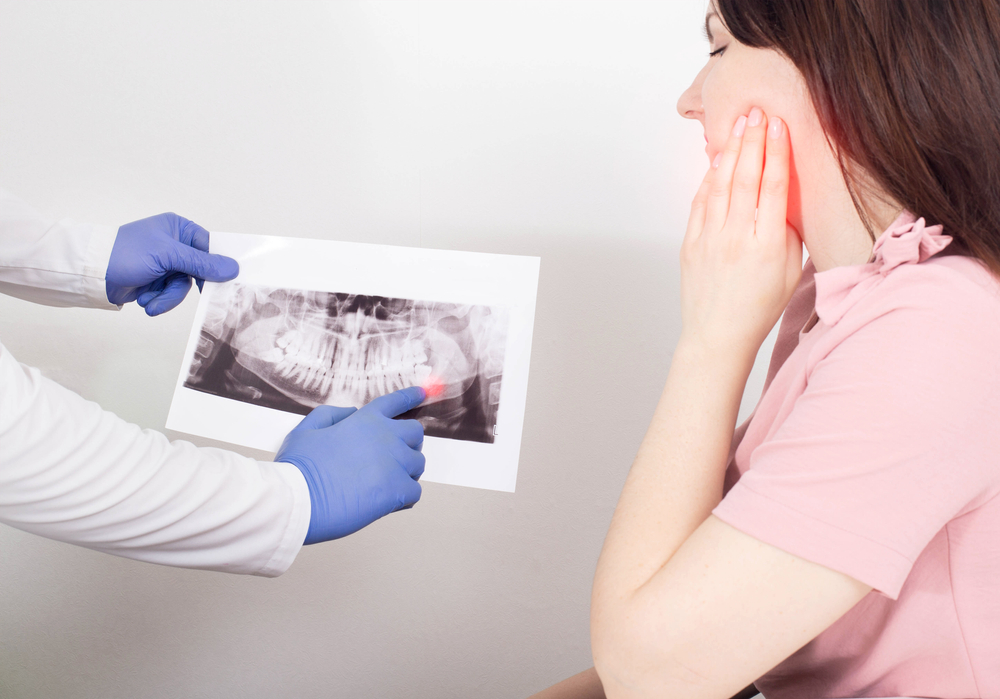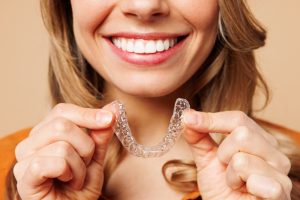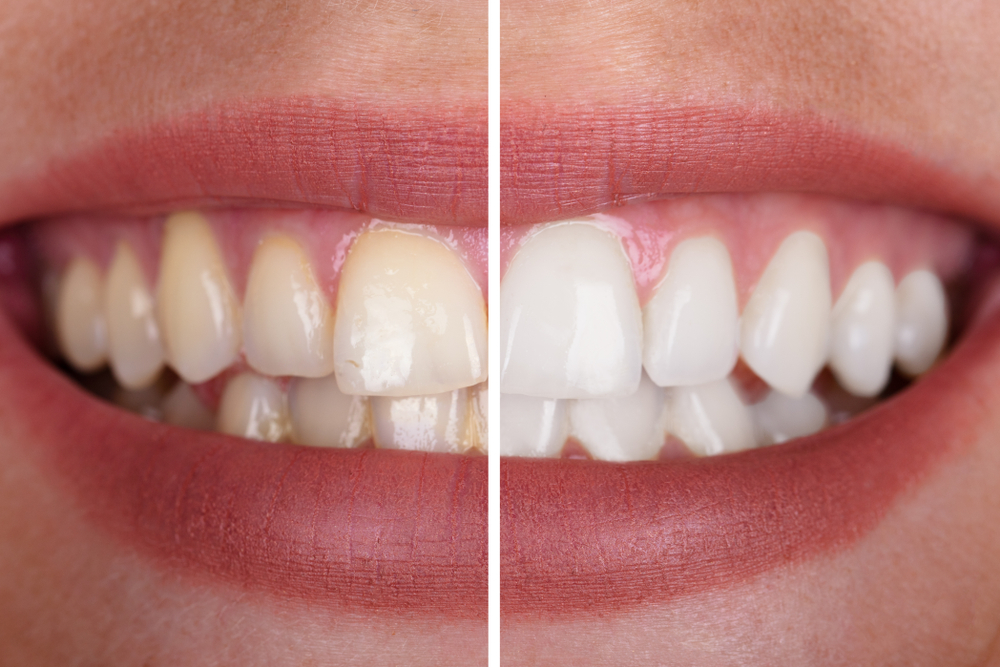Dental injuries aren’t just painful, they are typically unpredictable. One second, everything is fine. Next, you’re holding a broken tooth or trying to stop bleeding. It’s in these moments that fast, expert care matters most.
At Parkcrest Dental Group, our doctors provide trusted, responsive emergency dental care in Springfield, MO. Whether it’s a cracked molar, a knocked-out tooth, or a sudden jaw pain we are here to help. Most of the time, we can get you on the same day you call.
What Counts as a Dental Injury?
Not every dental issue is a trauma, but when it is you’ll usually know. Dental trauma involves sudden injury to your teeth, gums, lips, or jaw caused by impact, pressure, or force. It’s not just about pain, it’s about the potential long term damage that could be caused if left untreated.
Lets Break it Down.
If you have a true dental injury you might be dealing with:
- A chipped or cracked tooth from biting something hard
- A knocked-out tooth from a fall or sports injury
- Jaw pain or misalignment after an accident
- Bleeding or soft tissue damage inside of the mouth
- A loose or partially dislodged tooth following trauma
If you’re unsure the severity of your trauma, the safest choice is to call. We’ll help you to figure out our next steps, and fast.
What to Do in a Dental Emergency
In those first few minutes after an injury, what you do matters. And while every case is different, here are a few general guidelines:
Knocked-Out Tooth?
Handle it by the crown, rinse gently with water (no scrubbing!), and try to place it back in the socket. If that’s not possible, put it in milk or your own saliva and get to us immediately.
Cracked or Broken Tooth?
Rinse with warm water, apply a cold compress to control swelling, and avoid chewing. If you find the broken piece, bring it in with you.
Bleeding Won’t Stop?
Apply pressure with a clean gauze or cloth. If the bleeding continues after 10 minutes, it’s time for professional care.
Remember: don’t ignore discomfort or swelling. Pain is your body’s way of saying something that needs attention.
Why Do These Injuries Happen?
Dental trauma can happen anywhere. You could be on the field, at home, out to eat, or even in the car. Most often it’s one of a few causes:
- Sports collisions (especially contact sports without a mouthguard)
- Slips or falls are more common in younger kids and older adults
- Accidents like bike crashes or sudden impacts
- Biting down on hard foods like ice or popcorn kernels
While some situations are unavoidable, many injuries happen in moments that could be prevented with a little foresight.

Can Dental Trauma Be Prevented?
Yes! We strongly encourage patients to take every step needed to avoid traumas. Prevention is a big part of what we do at Parkcrest.
Custom mouthguards are one of the most effective tools, especially for kids in sports. Unlike over the counter versions, ours are fitted to your bite and provide better shock absorption.
Avoid chewing on non-food items or ice. Keep an eye on what kids put in their mouths. And if you’re an adult with a history of grinding, ask your doctor about a nightguard to prevent long-term enamel damage.
Prevention isn’t complicated. Often, it just takes awareness and a few smart habits.
How We Treat Dental Injuries
Every dental injury is different, and so is the care plan. That’s why we take time to evaluate your injury thoroughly before recommending treatment.
In some cases, a simple bonding treatment is all that’s needed to restore a small chip. In others, a cracked tooth may require a dental crown, or internal damage may call for a root canal. If a tooth is knocked out and brought in quickly, there’s a chance we can save it. If not, we’ll walk you through your options for replacement, like dental implants or bridges.
We also treat soft tissue injuries, provide referrals for oral surgery, and monitor your recovery progress.
What Recovery Looks Like
Recovery depends on the severity of the injury and the treatment involved.
Minor injuries may heal within a few days, especially if soft tissue is involved. Larger restorations, like crowns or implants, may require multiple follow-ups over the course of weeks or months. Throughout the process, your doctor will guide you through care instructions, what to watch for, and when to come back in. We’ll also help you manage any discomfort and adjust your treatment plan as needed.
Our goal at Parkcrest Dental Group is long-term health, not just short-term fixes.
When to Call for Emergency Dental Care in Springfield, MO
Here is our rule: if it hurts, if it looks wrong, or if you’re worried, call us. You don’t have to decide on your own whether something is an emergency. That’s our job. What matters is getting care quickly to prevent further damage.
At Parkcrest Dental Group, we’ve been helping Springfield families handle dental emergencies for decades. Our doctors have the training, technology, and experience to treat trauma and ease pain. All while making you feel taken care of from the moment you walk in.
Let’s Keep It Simple: We Are Here When You Need Us
Dental trauma is stressful. But knowing where to go and who to trust makes all the difference.
If you’re experiencing a dental emergency in Springfield, MO, don’t wait. Our team is ready to help you get out of pain, save your smile, and get back to life.
Call Parkcrest Dental Group now to speak with our team!
Frequently Asked Questions About Dental Injuries & Emergency Care (presented in a collapsible format)
What qualifies as a dental emergency?
Any sudden pain, swelling, bleeding, or injury to the teeth, gums, or jaw may qualify as a dental emergency. Knocked-out teeth, severe cracks, and uncontrollable bleeding all require immediate attention.
Can a knocked-out tooth be saved?
Yes, if you act quickly. If the tooth is handled properly and reinserted within 30–60 minutes, there’s a good chance it can be saved. Call Parkcrest immediately for emergency care.
How soon should I see a doctor after a dental injury?
The sooner, the better. Some injuries, like avulsed (knocked-out) teeth, require treatment within 30 minutes. Even injuries that seem minor can cause complications if ignored.
Does Parkcrest Dental Group offer same-day appointments for emergencies?
Yes. We do our best to see emergency patients the same day. Call our office, and our team will prioritize your care.
What if I’m not sure if it’s an emergency?
Call us anyway. It’s always better to be cautious. Our team can talk you through symptoms and help you decide what to do next.




